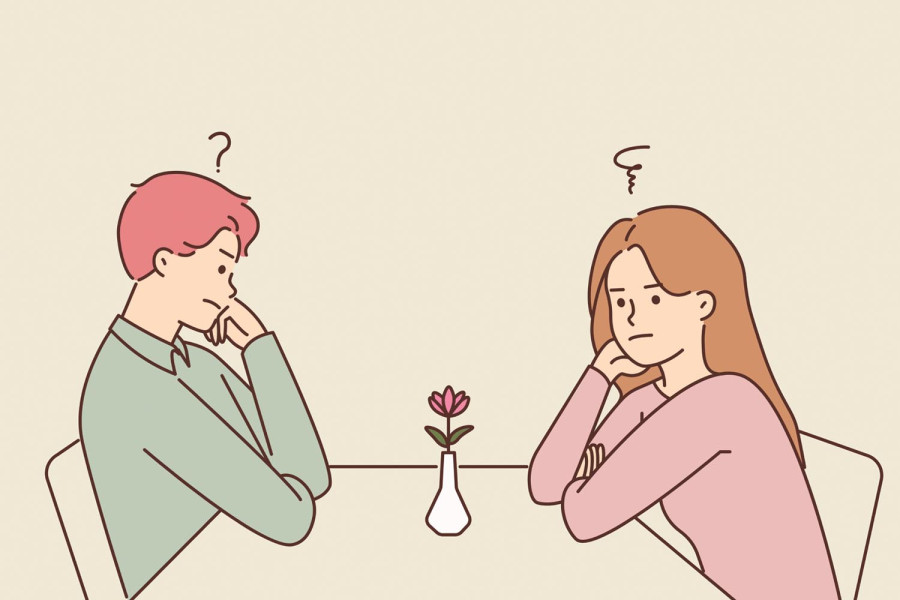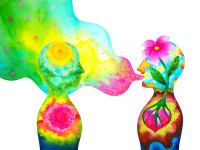Culture & Lifestyle
Overcoming dating anxiety
The problem arises when emotions interfere with our ability to engage in everyday interactions.
Rishika Dhakal
Have you ever postponed meeting someone for fear of being judged, only to have that person misunderstand your hesitation as a lack of interest in them?
Psychologist Namrata Singh Chhetri teaches psychology at Nepal Film Campus/Music School and lectures at Premier College. She explains dating anxiety and emphasises that connections are built on genuine self-expression.
What is dating anxiety, and how does it differ from social anxiety?
Dating anxiety occurs when a person is about to go on a date or is considering dating. It involves being nervous or concerned about how things will go, whether one will make a good impression, or if something will go wrong.
On the other hand, general social anxiety has to do with a generalised fear of social situations, such as parties or meetings, where one could be judged. This anxiety can affect any social encounter or interaction, whereas dating anxiety is concentrated on romantic interactions.
Why do we get butterflies in our stomachs before meeting someone new? Is this normal?
It’s normal to experience butterflies in the stomach before meeting someone new. It's the body’s reaction to the anxiety and excitement. Most individuals experience this emotion because meeting someone for the first time, particularly in a romantic setting, can be thrilling and anxiety-inducing.
The problem emerges when these emotions become unbearable and interfere with one's ability to relax or engage in everyday interactions. If a person's anxiety is so bad that it keeps them from going on dates, makes them worry excessively about how other people see them or interferes with their daily activities—they may have dating anxiety.
What do you do when you feel overwhelmed before a date?
Dating can make one anxious, but recognising and addressing the symptoms can help manage the stress. The first step is to identify the symptoms by being aware of typical anxiety indicators, like a racing heartbeat, sweat, or a tense feeling. Similarly, recognising that feeling anxious is normal and accepting one’s emotions can help.
Engaging in peaceful activities like walking, listening to calming music, practising meditation, and performing deep breathing exercises helps relieve tension and reduce anxiety. Additionally, staying true to oneself and remembering that authenticity promotes genuine connections.
Reminding yourself that dating is an opportunity to connect rather than a high-stakes event can help overcome anxiety.
What are some common cognitive distortions people with dating anxiety experience, and how can they be challenged?
Cognitive distortions are irrational and often biased ways of thinking that affect how we perceive and interpret events. They can result in emotional distress and unhealthy behaviours.
Research conducted by Aaron Beck and associates in the 1960s and 1970s discovered ten distinct kinds of cognitive distortions. Some common cognitive distortions are overgeneralisation, catastrophising, negative filtering, fortune telling or mind reading, all-or-nothing thinking, etc. Such cognitive distortions are experienced by people anxious about dating, making dating seem more intimidating.
For instance, people may overgeneralise, thinking they'll only find someone if one date goes well. It is essential to realise that no single experience determines the path of subsequent interactions.
Similarly, negative filtering causes an individual to concentrate only on bad times. To counter this, one should recognise the good and bad parts of the date and foster a healthy mindset. Mind reading is another common distortion in which people believe the other person is thinking negatively about them.
Additionally, one might think in black or white, seeing a date as a total success or a complete failure without considering the grey areas. Recognising that nothing will be perfect and focusing on the good things from the experience can be helpful.
Furthermore, “one should always be confident” sets up unreal expectations.
How can individuals recognise if they are experiencing dating anxiety?
One of the first markers of dating anxiety is a noticeable increase in physical symptoms. These can include a racing heart, trembling, sweating, or dizziness. If these symptoms appear just thinking about going on a date, dating anxiety may be the cause. Another important indicator is emotional indicators, including nervousness, fear, or dread before, during, or even following a date.
A person may have underlying anxiety if, for instance, they routinely avoid dating situations, cancel dates at the last minute, or prepare so much that they become exhausted. These actions result from a fear of things going wrong.
Social disengagement could also be an indication. Moreover, eating disorders or trouble falling asleep can also be signs of dating anxiety.
What are the common causes or triggers of this anxiety?
It is impossible to determine why a person is experiencing dating anxiety without first investigating their history, personality, beliefs and attitudes towards dating, attachment styles, history of trauma, and so on.

One major trigger is the fear of rejection. The possibility of rejection or failure to meet someone's expectations can be highly stressful, leading to overthinking and self-doubt.
Previous heartbreaks or uncomfortable dating encounters might have a long-term influence, increasing stress and reducing self-esteem. Individuals who lack self-esteem frequently obsess over how potential mates view them, believing they are not attractive or fascinating enough.
The assumption that every date should result in a great relationship or that one must always create a flawless impression sets unreasonable standards and heightens anxiety.
Can dating anxiety impact relationships?
Individuals suffering from this anxiety may place a great deal of reliance on their partners for comfort and validation, which can result in codependency and unbalanced relationships. Conflict might result from these behaviours being misconstrued as a lack of interest, distrust, or control concerns.
Communication breakdowns caused by dating anxiety are one of the main ways it damages relationships. People may find it difficult to express themselves honestly out of fear of being rejected or judged. Misunderstandings and a lack of genuine connection can prevent a couple from fully understanding each other’s thoughts and feelings.
Their fear of unfavourable results can also result in avoidant behaviours like postponing dates, isolating themselves from social situations, or never dating. This may impede the development of stronger ties and keep the relationship from moving forward.
The propensity to overthink and overanalyse interactions has an additional effect. Anxious individuals may read their partner's words or behaviours incorrectly, leading to unneeded tension and conflict. They may also be less present and involved on dates if they are often concerned about how others see them.




 14.24°C Kathmandu
14.24°C Kathmandu



.jpg&w=200&height=120)











